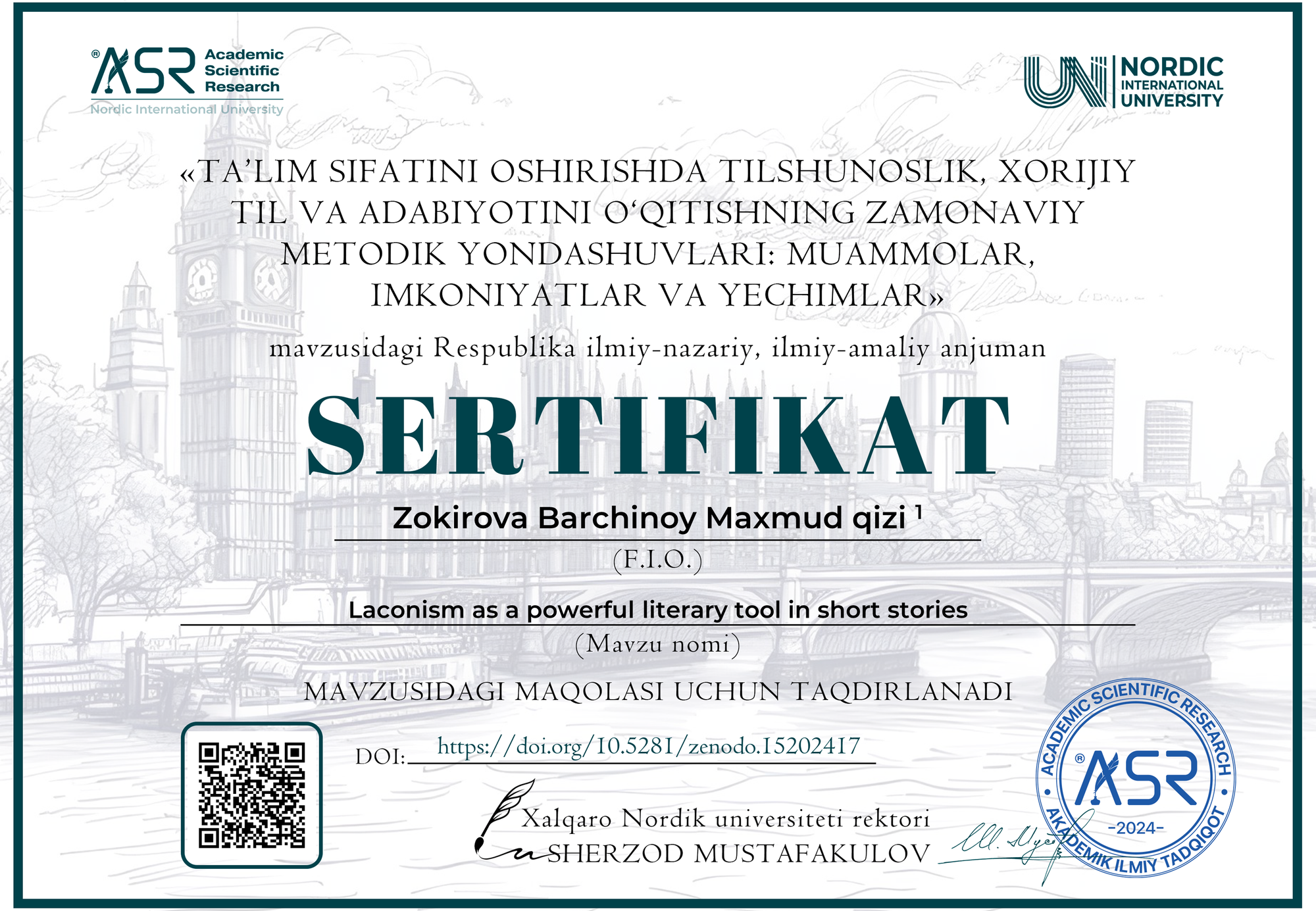Zokirova Barchinoy Maxmud qizi 1

DOI: https://doi.org/10.5281/zenodo.15202417
Google scholar: https://scholar.google.com/scholar?hl=ru&as_sdt=0%2C5&q=%22LACONISM+AS+A+POWERFUL+LITERARY+TOOL+IN+SHORT+STORIES%22&btnG=
Zenodo community: https://zenodo.org/records/15202417
Nordic_press journal: https://research.nordicuniversity.org/index.php/nordic/article/view/2358
MAQOLANI YUKLAB OLISH
SERTIFIKATNI YUKLAB OLISH
REVIEW:
This article offers a well-structured and thought-provoking exploration of laconism as a narrative strategy in short fiction. By examining the works of Ernest Hemingway, Raymond Carver, and Lydia Davis, the author convincingly argues that laconism is not merely a stylistic choice but a deliberate literary technique that enhances emotional depth, reader engagement, and thematic intensity.
The study is grounded in solid literary theory, referencing key scholars such as Wolfgang Iser, Gérard Genette, and Linda Hutcheon. This theoretical foundation allows for a nuanced analysis that bridges classical minimalism with contemporary reader-response and narratological frameworks. Notably, the comparisons among the three authors highlight the versatility of laconism across varying tones, styles, and thematic focuses.
The article’s originality lies in its comparative approach and in its call for further interdisciplinary research on the relationship between brevity and reader interaction. The clear and precise language, alongside relevant textual analysis, makes this paper a valuable contribution to the field of literary studies.
Overall, the article is insightful, academically rigorous, and makes a meaningful contribution to our understanding of minimalist aesthetics and narrative economy in modern literature.



